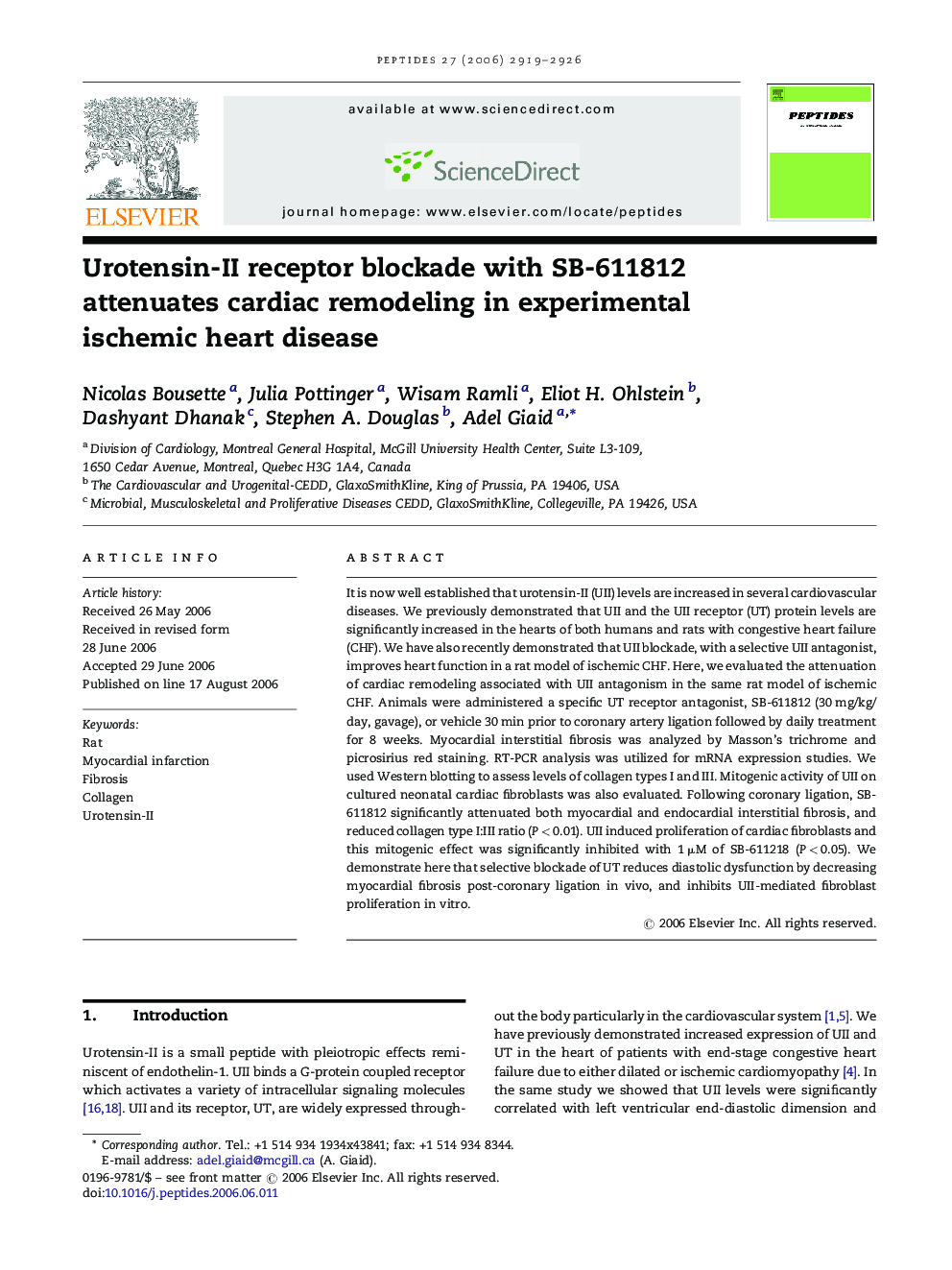| Article ID | Journal | Published Year | Pages | File Type |
|---|---|---|---|---|
| 2007850 | Peptides | 2006 | 8 Pages |
It is now well established that urotensin-II (UII) levels are increased in several cardiovascular diseases. We previously demonstrated that UII and the UII receptor (UT) protein levels are significantly increased in the hearts of both humans and rats with congestive heart failure (CHF). We have also recently demonstrated that UII blockade, with a selective UII antagonist, improves heart function in a rat model of ischemic CHF. Here, we evaluated the attenuation of cardiac remodeling associated with UII antagonism in the same rat model of ischemic CHF. Animals were administered a specific UT receptor antagonist, SB-611812 (30 mg/kg/day, gavage), or vehicle 30 min prior to coronary artery ligation followed by daily treatment for 8 weeks. Myocardial interstitial fibrosis was analyzed by Masson's trichrome and picrosirius red staining. RT-PCR analysis was utilized for mRNA expression studies. We used Western blotting to assess levels of collagen types I and III. Mitogenic activity of UII on cultured neonatal cardiac fibroblasts was also evaluated. Following coronary ligation, SB-611812 significantly attenuated both myocardial and endocardial interstitial fibrosis, and reduced collagen type I:III ratio (P < 0.01). UII induced proliferation of cardiac fibroblasts and this mitogenic effect was significantly inhibited with 1 μM of SB-611218 (P < 0.05). We demonstrate here that selective blockade of UT reduces diastolic dysfunction by decreasing myocardial fibrosis post-coronary ligation in vivo, and inhibits UII-mediated fibroblast proliferation in vitro.
